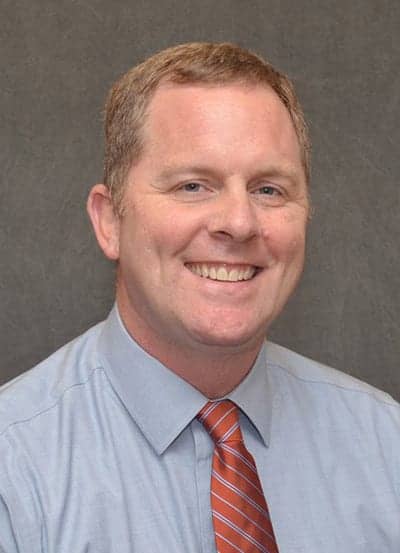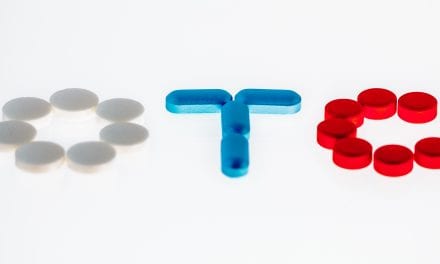Hearing loss experts at Mass Eye and Ear are advocating for the US Food and Drug Administration (FDA) to implement a law passed by Congress permitting the sale of over-the-counter (OTC) hearing aids, according to an announcement on the hospital’s website.
In a new column published November 19, 2020 in The New England Journal of Medicine, the experts write that the FDA has remained silent after missing the statutory deadline to implement the Over-the-Counter Hearing Aid Act of 2017. The authors point out that hearing aids are typically not covered by insurance, and such new regulations could greatly increase access to the devices and improve quality of life for some of the 30 million Americans who are hard of hearing.
Related article: Senators Warren and Grassley Urge FDA to Initiate ‘Overdue Rules’ for ‘OTC Hearing Aid Act’

“As medical providers, we fully appreciate the impact the COVID-19 pandemic has had on all sectors of health care. However, this inaction for OTC hearing aids is leaving millions of Americans without the necessary devices they were promised and will benefit from through implementation of this law,“ said Kevin Franck, PhD, director of audiology at Mass Eye and Ear and a member of the faculty at the Harvard Medical School’s Department of Otolaryngology—Head and Neck Surgery. “We call on the FDA to make OTC hearing aids a priority for the American people and address the deafening silence that has occurred since the federal government heard the call from advocates and issued a legislative mandate over three years ago.”
Congressional Law Remains Stalled Since 2017 Passage
Hearing impairment can significantly impact a person’s quality of life. Numerous studies have reported benefits of hearing aids; however, only an estimated 15-30% of eligible people with hearing loss get a hearing aid. This can be due to limited access to hearing services and a prohibitively expensive price – hearing aids can cost over $2,300 per ear, and often are not covered by insurance.
These barriers prompted Congress to pass the bipartisan Over-the-Counter Hearing Aid Act of 2017, which required the FDA to propose regulations within three years governing OTC hearing aids for the treatment of adults with mild-to-moderate hearing impairment. The FDA missed the deadline to release the much-anticipated regulations on August 18, 2020, citing competing priorities during the COVID-19 pandemic. Yet with mask requirements and calls for social distancing during the pandemic negatively impacting the hearing impaired and their ability to lip read, the authors argue the need for OTC hearing aids is greater now than ever.
Authors Offer Recommendations for Regulation
Among the law’s requirements, Congress tasked the FDA to formulate regulations to assure the safety and effectiveness of OTC hearing aids. However, most hearing aids sold through clinics are exempt from FDA premarket review, and manufacturers are not required to submit evidence of their safety and effectiveness in order to receive clearance for marketing. This lack of framework currently puts the onus of evaluating hearing aid performance to patients and their hearing providers.

“We believe it will be critical for the FDA to require premarket testing, so that any patient who shops online or in person for a hearing aid receives a product that is proven to be effective,” said Vinay K. Rathi, MD, a postdoctoral clinical fellow at Mass Eye and Ear. “The current hearing aid market is very consolidated, but creating a class of over-the-counter hearing aids could encourage entry by new manufacturers and spur innovation. That said, newer is not always better. Regulators and clinicians need to carefully evaluate new technologies as they come online.”
The authors suggest that the FDA could require clinical study of novel OTC hearing aids or new models with user interfaces that substantially differ from previously approved devices. They also call for studies to assess the comparative effectiveness of user-fitted aids to audiologist-fitted aids or other OTC hearing aids. This evidence can help support informed decision making as patients and clinicians adapt to what could be a significant increase in available devices.
Establishing stricter pre-market requirements could help the FDA make a clearer distinction between hearing aids and other wearable sound amplification products that are available online. The authors urge the FDA to strictly enforce the distinction between these types of devices and collaborate with the Federal Trade Commission (FTC) to prevent confusion among consumers, particularly when these two types of devices are available at the same points of sale.
About the Authors
Dr Kevin Franck is a practicing audiologist with 20 years of academic, clinical, and industry experience in healthcare and bionic medical/hearing devices. He directs nonprofit deaf advocacy organizations as a volunteer board member/trustee for the Hearing Loss Association of America (HLAA), which was involved in lobbying Congress to pass the law. Franck is also participating in an invited article for the Lancet Commission to address technology and innovation and its response to global burden of hearing loss. Prior to joining Mass Eye and Ear, Franck was head of marketing for Bose Hear Emerging Business, a division of Bose Corporation focused on developing hearing tools. Franck was one of three founding members of EarMachine, a startup funded by the National Institutes of Health (NIH) before it was acquired by Bose in 2014.
Dr Vinay K. Rathi is a clinical fellow in Otolaryngology—Head and Neck Surgery at Mass Eye and Ear and Harvard Medical School. His research interests include medical device regulation and healthcare payment reform. His work has been published in JAMA, The New England Journal of Medicine, Nature Biotechnology, and the BMJ. Rathi previously worked at McKinsey & Company, Mass General Brigham, and the Yale-New Haven Hospital Center for Outcomes Research and Evaluation (CORE).
Original Paper: Franck KH, Rathi VK. Regulation of over-the-counter hearing aids — Deafening silence from the FDA. New England Journal of Medicine. 2020;383:1997-2000.
Source: Mass Eye and Ear, New England Journal of Medicine
Images: Mass Eye and Ear






MDs pushing for over the counter hearing aids?
That’s rich! For years I have been seeing people who told me their doctors did not recommend the use of hearing aids. Or, recommended one aid for a binaural hearing impairment.
Now they want to recommend an over the counter NO HEARING TEST , NO CUSTOM FIT, NO CUSTOM PROGRAMMING, no one there to counsel, or advise, or help maintain the device, not even anyone to look in the ears!
And because of cost???
I spend on average two hours with a patient for a full hearing evaluation and hearing instrument selection and two hours for the delivery appointment and as many half hour follow up appointments as needed until the patient is satisfied. And WE are charging too much?
I am not expressing this opinion out of self- interest.
Thankfully, I am at the end of my rewarding career knowing I helped many people to hear well. I make about 100,000 a year. Any MDs out there find that excessive? But this OTC business just may result in more harm than good. Many users will not get the help they really need, they will wear them in the drawer, they will lose them, they will get plugged up with cerumen, the tips may come off in the ear, they will not seek the help they need because they will think they already tried to wear hearing aids and failed, ear problems will go undetected because no one looked in their ears, and I could go on and on.
Our industry may not be perfect. I know there are people who take advantage of the elderly. People like that exist in every field. I know there are a few that charge too much. People like that exist in every type of business. But the vast majority of audiologists and hearing aid specialists are good people trying very hard every day to provide their patients with the best possible hearing outcomes, and they are not getting rich doing so.
And I can tell you that you would probably not be able to do what they do on a daily basis. I could write a book. No one would want to read it. This business requires more patience than most people have.
For any doctor of any type to say that it is urgent for OTC hearing aids is just plain outrageous. A doctor makes a very good living at what he does so please let the practitioners and hearing aid specialist do their job to make a living.
Also, most MD’s no longer look in the ears of a patient.
Hearing instruments are just that, they are not hearing aids, they are just amplifiers. This day and age their is very good instruments at all prices that a hearing instrument specialist can prescribe. Yes, prescribe! You wouldn’t want someone coming into your practice telling you that you no longer can take someone’s blood pressure. This would take away a fee that you charge for this service.
COMMENT In truth, no branch of health care in the US today provides as much care and attention for so little cost as does the retail hearing health field. But that did not meet the narrative of those who pushed through legislation that will leave hearing impaired consumers unprotected and providers unsupported so that an avalanche of unlicensed dispensers and new manufacturing players can come in and seize potentially a majority of the hearing aid business in the United States.
Proponents claimed that cost and accessibility were the two main barriers to consumers obtaining hearing aids, when neither of those two deterrents have ever shown up at the top of any objective list of barriers derived from any study with which this author has been part of. Instead, denial of even having a hearing loss topped the list of reasons hearing impaired individuals decided not to purchase a hearing aid, followed close by stigma, own-voice complaints, ability to function in noise, discomfort, and finally, at the bottom of the list was cost.
Accessibility has never shown up on any appropriately investigated list of barriers, as well. This researcher was unable to find a single community of at least 10,000 persons that did not have access to professional services in the United States. Just like the manufactured issue of cost, the issue of access was also designed to play on the ignorance of legislators and others who had absolutely no idea about how thorough and elaborate hearing aid distribution or how competitive hearing aid pricing with necessary services has become in the free market. The larger healthcare field would learn a great deal from the world’s lowest cost and most effective hearing health delivery system. But the misconceptions, false representations, and subterfuge didn’t stop there. The worst possible of solutions to any of the weaknesses in the current hearing healthcare system of the United States is the ill-conceived OTC Hearing Aid Bill. I urge the FDA to table that one and get back to improvements that will make it better, not worse for everyone.